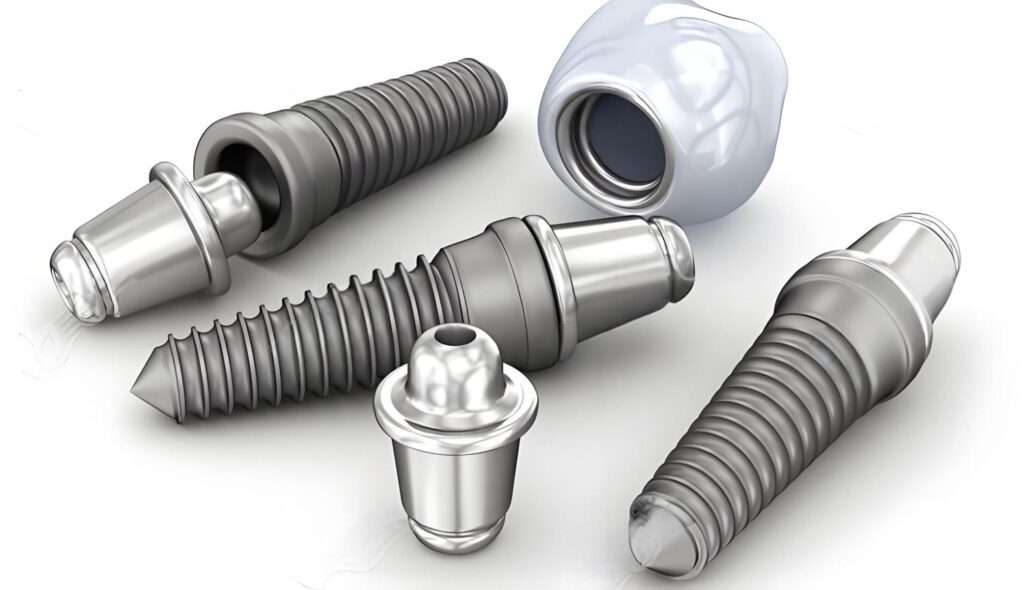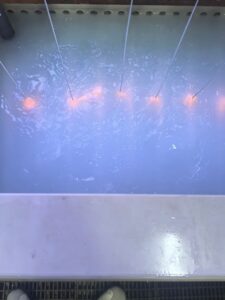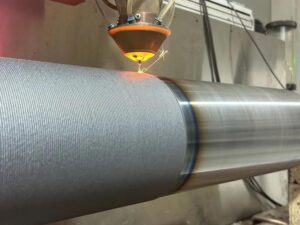Titanium is a versatile metal renowned for its strength, durability, and skin-friendly properties, making it a top choice in industries like jewelry, medical devices, and aerospace. For individuals with sensitive skin or metal allergies, a key question often arises: is titanium hypoallergenic? This blog explores titanium’s hypoallergenic qualities, its applications, advantages, and limitations, providing a detailed resource for those seeking safe, durable materials. Whether you’re considering titanium jewelry or medical implants, this guide offers valuable insights.
What Does Hypoallergenic Mean?
To understand if titanium is hypoallergenic, it’s important to define “hypoallergenic.” This term describes materials less likely to trigger allergic reactions, particularly in individuals sensitive to metals like nickel or cobalt. Hypoallergenic metals are critical in applications involving prolonged skin contact, such as earrings, watches, or surgical implants. Allergic contact dermatitis, characterized by redness, itching, or rashes, affects up to 20% of people exposed to common allergens like nickel. Titanium’s reputation as a hypoallergenic metal makes it a popular alternative for those seeking comfort and safety.
Why Hypoallergenic Materials Matter
For people with metal sensitivities, choosing the right material is essential to avoid skin irritation. Hypoallergenic metals like titanium are widely used in jewelry and medical applications due to their low risk of causing reactions. This section sets the stage for understanding titanium’s unique properties and why it stands out in the machining industry.
Why Is Titanium Hypoallergenic?

Titanium’s hypoallergenic properties stem from its chemical stability and resistance to corrosion. Unlike metals that release ions when exposed to sweat or bodily fluids, titanium remains inert, reducing the likelihood of allergic reactions. This makes it a preferred material for sensitive skin and biocompatible applications.
The Science Behind Titanium’s Hypoallergenic Nature
When exposed to air or moisture, titanium forms a stable oxide layer that acts as a protective barrier. This layer prevents the metal from reacting with skin or body fluids, unlike nickel, which can dissolve and trigger irritation. According to studies, titanium’s inertness makes it ideal for medical implants, such as hip replacements or dental fixtures, where biocompatibility is crucial. This property also benefits those wearing titanium jewelry, ensuring comfort during prolonged use.
Who Benefits from Titanium’s Hypoallergenic Qualities?
Individuals with metal allergies, sensitive skin, or a history of dermatitis benefit most from titanium. It’s a safe choice for anyone seeking hypoallergenic jewelry or medical implants. Titanium’s reliability extends to those undergoing surgeries, as it minimizes the risk of adverse reactions, enhancing patient outcomes.
Applications of Titanium’s Hypoallergenic Properties
Titanium’s skin-friendly nature and durability make it a versatile material across multiple sectors. From fashion to healthcare, its hypoallergenic qualities shine in various applications.
Jewelry and Accessories
Titanium is a favorite in the jewelry industry for crafting rings, necklaces, earrings, and watches. Its lightweight design and hypoallergenic properties make it perfect for daily wear, especially for those prone to skin irritation. Titanium can also be anodized to create vibrant colors without dyes, adding aesthetic appeal without compromising safety. Explore Precionn’s titanium jewelry collection for stylish, skin-friendly options.
Medical and Dental Implants
In healthcare, titanium’s biocompatibility makes it a staple for surgical implants, including bone plates, joint replacements, and dental implants. Its hypoallergenic nature ensures minimal risk of rejection, improving patient safety. Learn more about Precionn’s precision machining for medical devices.
Wearable Technology
The rise of smartwatches and fitness trackers has increased demand for hypoallergenic materials. Titanium’s durability and skin-friendly properties make it ideal for devices exposed to sweat or water. Its corrosion resistance ensures longevity, making it a smart choice for wearable tech manufacturers.
Advantages and Disadvantages of Titanium’s Hypoallergenic Properties
While titanium’s hypoallergenic qualities are a significant draw, it’s essential to consider both its benefits and limitations to determine its suitability for your needs.
Advantages of Titanium’s Hypoallergenic Nature
- Skin-Safe: Titanium’s inert nature reduces allergic reactions, making it ideal for jewelry and implants.
- Corrosion Resistance: Its oxide layer protects against corrosion, ensuring safety and durability.
- Lightweight Strength: Titanium combines strength with a lightweight feel, enhancing comfort.
- Biocompatibility: Its compatibility with human tissue makes it a top choice for medical applications.
- Aesthetic Flexibility: Anodization allows vibrant color options without compromising hypoallergenic properties.
Disadvantages of Titanium’s Hypoallergenic Nature
- Higher Cost: Titanium is pricier than alternatives like stainless steel, impacting affordability.
- Machining Complexity: Its toughness requires specialized machining, increasing production costs.
- Limited Availability: Titanium may be less accessible in some markets, affecting consumer access.
- Rare Sensitivities: Though uncommon, some individuals may react to titanium alloys containing trace allergens.
How to Choose Titanium for Your Needs
Selecting titanium involves ensuring its purity and quality. For jewelry, opt for commercially pure titanium or medical-grade options to avoid alloys with potential allergens. Consult with professionals, such as jewelers or medical experts, to verify the material’s suitability. For medical implants, trust certified manufacturers like Precionn, who specialize in precision titanium machining. When purchasing titanium products, check for certifications and prioritize brands with expertise in hypoallergenic materials.
Tips for Buying Titanium Products
- Verify the grade of titanium (e.g., Grade 1-4 for pure titanium).
- Choose reputable suppliers with a focus on quality.
- For jewelry, ensure the piece is free of nickel or other allergenic metals.
- For medical devices, confirm biocompatibility standards.
Precionn’s Expertise in Titanium Machining
Titanium’s reputation as a hypoallergenic material is well-earned. From jewelry and eyewear to implants and industrial applications, its safety, durability, and biocompatibility make it an excellent choice for people seeking reliability without health concerns. While no metal is 100% allergy-proof, titanium stands out as one of the safest and most versatile options available.
At Precionn, our expertise in precision machining ensures that we deliver titanium components with the highest quality standards. With years of experience in the machining industry, we are proud to serve international clients who value safety, performance, and innovation. Whether for industrial applications or specialized projects, Precionn is committed to providing solutions that combine advanced technology with customer-focused service.




